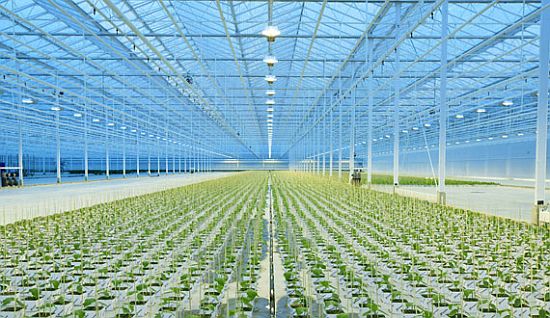Eight years ago, a group of MPs in the UK produced a report urging the government not to ‘show complacency’ in the face of problems over the country’s food supply. This was long before the pandemic and the Russian invasion of Ukraine, and some time before the reality of climate change was brought home to many in the form of heatwaves and drought such as we have suffered this summer. But the MPs were not despondent. They had an answer. It was called Thanet Earth.
Thanet Earth began in 2010 and has been growing ever since. It is now one of the largest glasshouse complexes in the world. The greenhouse space for tomatoes alone is the size of 25 football pitches. It produces about 400 million tons of tomatoes, 30 million tons of cucumbers and 24 million tons of peppers each year.
Nothing as ‘old-fashioned’ as soil is used – the vegetables grow in blocks of fibre and are watered by droppers that ensure they receive just the right amount of water, spiced with special nutrients. No worries about weather conditions. No concerns about soil dried up by raging summer heatwaves. Growlights come on at night to make sure the vegetables grow even faster.
Where is all this going? Thanet Earth aims to expand further and is on course to produce one-third of all the UK’s cucumbers and tomatoes. Yet this vast complex has not been without difficulties – accusations of an eerie night-time glow amounting to light pollution, sweatshop labour conditions and a shortage of pickers (it needs 800) post-Brexit that has led to tons of produce going to waste. There are also arguments about its effect on local ecosystems and the way that a large area of farmland has been displaced to make way for it.
Yet this is the way some people think about the future of farming. It will be hauled out of old-fashioned fields and put inside rigidly controlled and monitored mega-complexes which will be immune to the vicissitudes of weather. Is the UK heating up?
Are its green fields turning yellow? Not inside Thanet Earth. But does this mean that we will eventually manage agriculture on Earth the way we’d have to manage our lives if we ever colonised the moon, packed inside artificial zones of protection from a hostile environment?
In 2022 it is clear that conflict, drought and the pandemic have made food supplies unreliable. But even if the world becomes more peaceful and the pandemic dies down, there is no escape from food insecurity through trying to step outside nature itself. Instead of dealing with climate change and restoring a balance to nature, we are in danger of retreating behind the screen of huge artificial feeding zones kept away from an increasingly hostile natural environment. Surely this is not a desirable alternative.
The only way forward is to reverse the present trend of making Earth about as easy to live on as Mars or Venus. There is no long-term advantage from retreating inside Thanet Earth because Planet Earth has been left to overheat and wilt.

